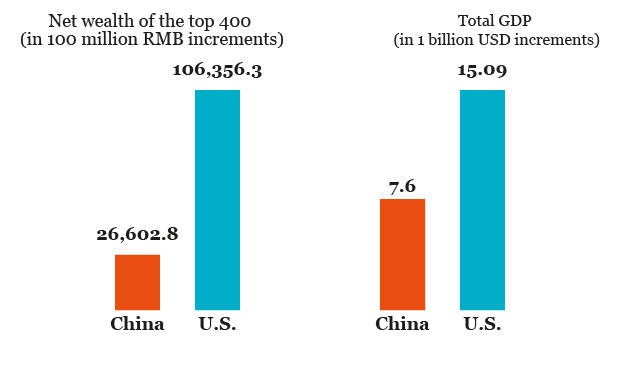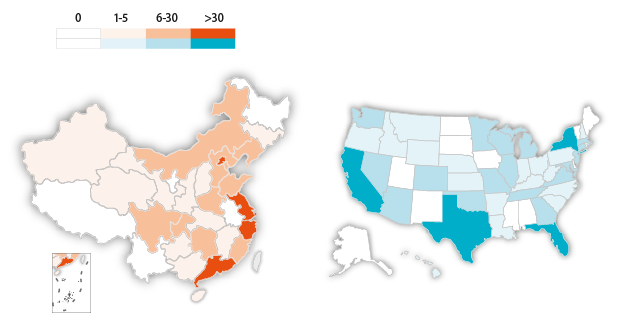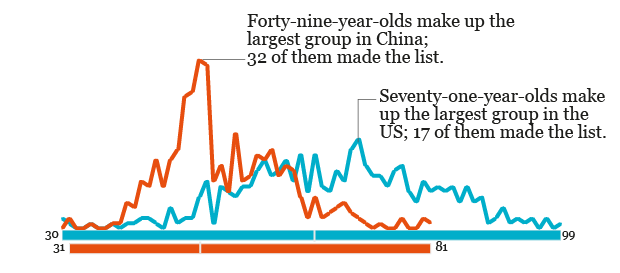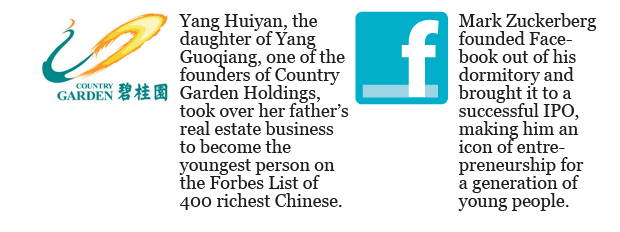CNPolitics, a Chinese-language news website, recently released this infographic examining the differences between China and America’s wealthiest individuals as reported by Forbes Magazine. As the site notes, China’s relatively recent economic rise means its wealthy tend to be younger. Perhaps surprisingly for a country where all land legally belongs to the state, China’s rich are more likely than their American counterparts to have made their money in real estate. While the data may exclude individuals with undeclared assets—and thus potentially a number of contenders from both countries—it does reveal some unique differences between the world’s top two economic powerhouses. ChinaFile partner site Tea Leaf Nation translates.
America’s wealthy have more money
Total GDP (in 1 billion USD increments)

America’s wealth is distributed more evenly across the country
Entrepreneurs in China’s coastal regions have benefited from policies promoting development, and have climbed more quickly into the ranks of the wealthy. The top nine people on Forbes’ list of the wealthiest Chinese are from those provinces. In contrast, America’s wealthy are spread more evenly throughout the country. Excepting California and New York, there are not very significant geographical differences.

China’s wealthy are younger
Since 1992, China’s market economy has grown rapidly, and many of today’s wealthy began to get rich then. People around age fifty make up the largest group; they were around thirty years old and in their golden entrepreneurial years in 1992.

The average age of China’s richest 400 is forty-nine years old, the average for the U.S. is sixty-five.
China’s wealthy are hooked on real estate. There are more wealthy in the Information Technology industry in the U.S..
America’s wealthy work in a greater variety of fields: sports, the media, self-storage, express delivery services, airplane rental … these industries do not make one wealthy enough to make the Forbes list in China. The ability of the Internet to create wealth and innovate is strong in the U.S. as always, while some of China’s wealthy IT moguls got rich through income from the online gaming industry.
Of China’s wealthy, 129 had operations related to real estate; their total worth makes up approximately 35 percent of the total for all 400.
Of America’s wealthy, thirty-six people had operations related to real estate; their total worth makes up approximately 6.8 percent of the total for all 400.
Thirty of America’s wealthiest 400 have operations related to IT, software, and the Internet, while for China is was only eighteen.
Representatives of the next generation of Chinese and American wealth

What are the real differences between the U.S. and China? Perhaps they are embodied in the differences in the wealthy in each country.



